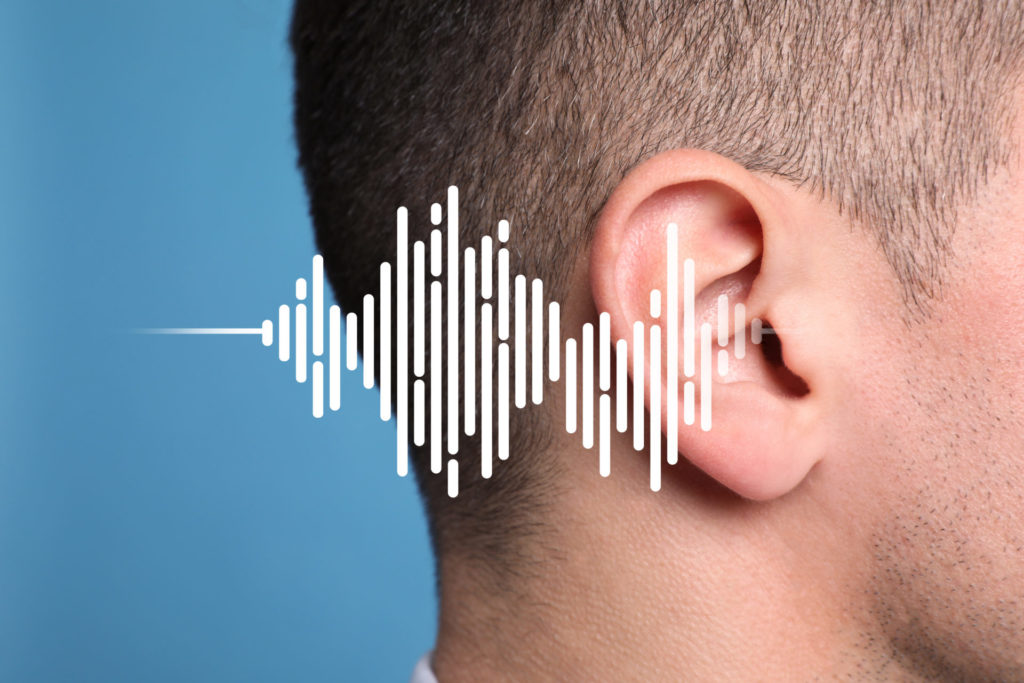The hidden risks of hearing loss
Affecting your quality of life and withdrawing socially.
You might be unaware that your hearing is causing you problems and affecting your quality of life. It is easy to compensate for hearing loss and become used to the issues that come with it. Ears are much like your eyes, an essential human sense. You will subconsciously compensate for the different frequencies you can’t hear and avoid social situations that compromise your hearing. Background noises, keeping up with conversations and communicating at social occasions might be overwhelming and lead you to withdraw from them without realising.

It is very important to have regular check-ups. As you might be withdrawing from social situations and compensating too much, all of this and more will be discussed. Are you compromising on your quality of life too?
Quality of life
Quality of life is unique to everyone’s perspective and hearing helps contribute to this, as it allows you to communicate effectively with your friends and family. Without it, you could be miscommunicating and becoming hard to understand. Why not get a hearing test then? We often find patients talking themselves out of getting a hearing test. We commonly hear the following:
- My hearing is not that bad
- Wearing hearing aids means I am old, and I am not ready to be old
- I don’t like the way hearing aids look
- I always am hard of hearing, I’ve just managed in my own way
- I’ve heard that hearing aids are difficult to use
- I’ve been told I’ve got selective hearing
If you’ve been talking to yourself like this then your quality of life might be suffering as a consequence of not getting your hearing tested. If so, we understand the first step can be the most difficult. The stigma surrounding hearing aids has become less and less prevalent, as the technology, hardware and quality have vastly improved from years in the past. Additionally, we pride ourselves on customer service excellence as this can be the determining factor in whether a patient feels comfortable to make the first step. We want you to feel comfortable when deciding what hearing aid will help improve your quality of life.
Withdrawing Socially
In many cases, you might be withdrawing socially without realising and regular checkups can help avoid this. Everyone should feel a part of a community and have friends to lean on, and most of all should be able to have fun and enjoy life to its fullest. Without good hearing, this can be difficult, as hearing is a primary method of communicating and enjoying social events. In social situations background noise is distracting when you are suffering from hearing loss and listening to people can feel more like a chore than a natural process.
So, why get your hearing tested? Or how do I know my hearing needs testing? The following topics will help you assess whether you need to come in and see us. Pick up the phone and we are more than happy to discuss any problems, questions and more.
We aim to cover important topics in this blog or on our FAQs.
The effects of not getting your hearing tested regularly
Social isolation
Commonly, hearing becomes worse over time and affects elderly people the most. When untreated, keeping up with conversation is the hardest part. A common cause of social isolation is you don’t / can’t keep up with the conversational back and forth. The knock-on effect is the emotional side effects as social events and conversations can feel like a chore and you stop going and don’t talk. Also, it’s common for people to misdiagnose you with depression. However, this can be very incorrect and you might not be aware that it could be hearing loss you are suffering with. This can make a person go inwards and self-diagnose themselves too, which will then lead to the following:
- Irritable, negative and anger
- Fatigue, stress and tension
- Avoidance or withdrawal from social occasions
- Social rejection and loneliness
Here are a few facts that might make you consider getting your hearing tested
- Up to two-thirds of adults over the age of 70 have some type of hearing loss.
- Older people are typically more vulnerable to isolation and loneliness.
- The Marmalade Trust found that roughly 9 million people in the UK say that they ‘often feel lonely’ or ‘always feel lonely’.

Dementia
Dementia is also misdiagnosed and is not prevalent in older people due to it being a general term for the ability to remember, think or make decisions that interfere with doing everyday activities. Many older adults live their entire lives without developing dementia and isn’t a part of normal ageing. Signs and symptoms of dementia are:
- Memory
- Attention
- Communication
- Reasoning, judgement and problem-solving
- Visual perception beyond typical age-related changes in vision
Doesn’t this sound familiar to hearing loss and social withdrawal? It’s because they are closely linked to each other. A hearing loss will cause the brain to work harder to fill in the gaps as you can’t hear conversations, your brain will then compensate for missing words. This expense of brain power will cause thinking and memory systems to worsen. Your brain is being used to compensate for the hearing loss which is making you withdraw socially too. It is found that hearing loss can cause ageing of the brain and contribute to faster brain shrinkage over time. An intellectually stimulating conversation can help reduce dementia, which is known to be harder for people suffering from hearing loss. It has been found that 8% of dementia cases are from hearing loss – this is 800,000 of nearly 10 million cases each year.
Check your hearing
There are many reasons you should check your hearing but the points we have covered shouldn’t be overlooked. As you grow older, your hearing should still be a human sense you can rely upon and give you the ability to connect with others. Also, from an early age, it is important to keep your hearing checked up, as you might be suffering from hearing loss without realising it. This will only form bad habits later in life and could see you withdraw from parts of life that you should be enjoying to the fullest.
At Nathan Gluck Hearing we are sensitive about hearing loss and will walk you through the process from start to end, making sure you feel comfortable when we check your hearing, so we can fit the best hearing aid for you. Equally, if you need more time to think about the decision and which hearing aid to get. We don’t put pressure on you to decide there and then. We will give you as much time and advice as you need to make the best decision for you.
We are independent for a reason, so we can offer you the best advice, product and service on the market, and give you the best support for your hearing to improve your quality of life.
Get in touch
If you’re concerned you may have a problem with your hearing, or you’d like to arrange a hearing test for a family member, we’re here to help.
Nathan Gluck Hearing Care,
20 Wentworth Road,
Golders Green, London,
NW11 0RP, UK